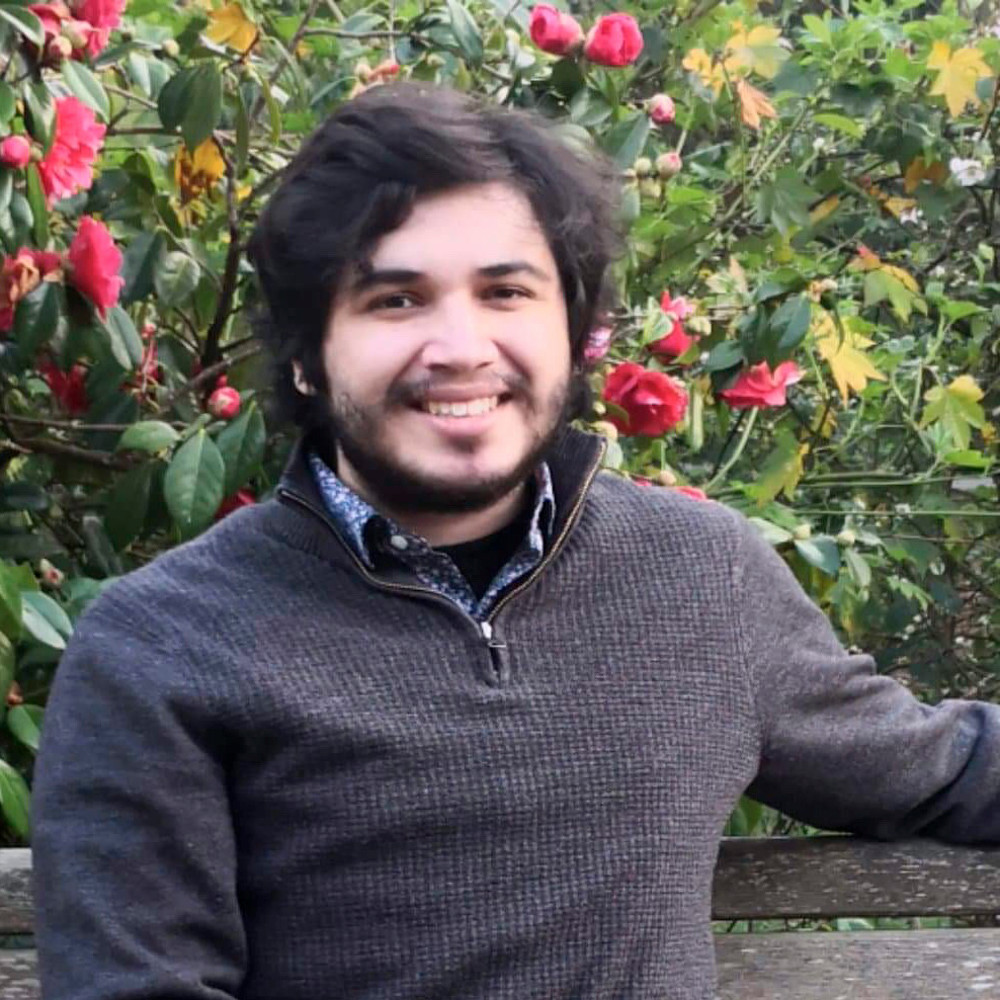Announcing the 2024 Scholars of Sexology Fellows
The Scholars of Sexology Fellowship is awarded annually to support the work of one or more graduate students whose research would benefit from the resources of the Kinsey Institute Collections. Fellows are also expected to contribute to the organization, preservation, and/or accessibility of Kinsey Institute collections.
Congratulations to our 2024 Fellows: Fiona Bell, Bruna Kalil Othero Fernandes, Louise Ferrall, and Ben Maldonado, and to Honorable Mention Emerald Vaught.

Fiona Bell is a Ph.D. candidate in Slavic Languages and Literatures at Yale University. Her dissertation traces the history of the “Russian woman,” a complex idea about sexuality and race that developed in the nineteenth century. The “Russian woman” was somatically but not always culturally white, sexually appealing and disgusting, robust and degenerate, docile and insurgent. Through close readings of works by canonical writers like Dostoevsky and Tolstoy, alongside uncanonized texts by Avdotya Panaeva and Elsa Triolet, this dissertation not only studies representations of race and sexuality in Russian literature, but also indicates literature itself as a tool that makes race and gender: for its writers, characters, and readers.
At the Kinsey Institute, Fiona will expand her project by integrating sources from European and U.S. contexts: twentieth-century erotic novels about enserfed women in Imperial Russia, as well as Cold War femme fatale spy plots. Why have western writers and cultural producers—from Sade and Fourier to Krafft-Ebing and Freud, and many erotica and pornography producers working in their wake—associated Russianness with sexual deviance? By moving beyond the Russian context, Fiona hopes to identify the “Russian woman” as an important and undertheorized type in the global history of sexuality. Following her research at the Kinsey Institute, she will complete an annotated bibliography and public digital presentation on Cold-War-era Russia-themed erotica from the collections.
Bruna Kalil Othero Fernandes is a Ph.D. student in the Department of Spanish and Portuguese at Indiana University. Fernandes' research project "Barbecued Husbands: South American Indigenous Eroticism" aims to search and analyze the Kinsey Institute’s collection by focusing on the multiple eroticism cosmovisions and perspectives of South American indigenous peoples. This project also will culminate in the creation of media products in the format of short videos showcasing a few remarkable items from the archives. The primary goals involve researching, analyzing, and cataloging the Kinsey Institute’s archives related to erotic art produced by South American indigenous peoples. This encompasses not only art itself (literature, visual arts, videos, audios), but also academic and essayistic works that discuss the topic.
The outcome of this research will be digital media products, made to be posted in social media and shared to a broader audience the treasures Kinsey Institute has in its holdings. By focusing on South American indigenous eroticism, this research will contribute to raising awareness of a neglected topic even in Native American studies, and at the same time will dialogue with different academic disciplines and fields — Portuguese, Spanish, Literature, Anthropology, Ecology, and History.

Louise Ferrall is a Ph.D. student in the Gender Studies Department at Indiana University. Ferrall's project will explore how fertility clinics and sex education in the United States interact within the artificial reproductive technology (ART) landscape.
ARTs are medical interventions that help individuals get pregnant, and the term generally refers to in vitro fertilization (IVF), gamete cryopreservation (egg or sperm freezing), and intracytoplasmic sperm injection (ICSI). To date, Ferrall's research on egg freezing has led to the hypothesis that, due to inadequate sex education, there is a gap in fertility knowledge that can make individuals unaware or misinformed about how their own fertility functions. Misinformation about how easy it is to get pregnant can then collide with cultural messaging towards women about their “ticking biological clock.” These conflicting messages may create confusion about fertility and conception.
For this project, Ferrall plans to include ART techniques beyond egg freezing. How does the sex education (both in-school and cultural) in the US interact with user experience of ART practices?Additionally, as reproductive technologies become more popular, a catalog of ART related materials in the Kinsey Institute library and archival collections will be a major benefit for the public and academic community. Ferall will make a collection guide showcasing materials that connect to IVF, egg and sperm cryopreservation, and modern reproductive technology techniques. This will be a living document future researchers can edit and add to as the Institute grows and obtains more ART materials.

As part of the Scholars of Sexology Fellowship, Maldonado will also produce a finding aid for researchers hoping to use the Kinsey Institute Library and Special Collections to do research related to aging and gerontology. He hopes that scholars of aging will benefit from thinking about the role sexologists played in constructing ideas of the aging body and of bodily rejuvenation.

Honorable Mention
Emerald Vaught, Ph.D. student in the Gender Studies Department at Indiana University
Research topic: Representations of Transfemininity in Film
Support Kinsey
Love is more than an emotion. It is essential to our individual and collective well-being. Your support will help the Kinsey Institute advance research and education in the science of love and give a diverse field of researchers the resources they need to make new discoveries.
Pledge your support